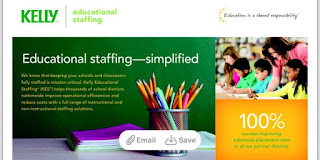"Those kids," "These kids," and "My kids."

Happy Black History Month! Today I am reminded of an undergraduate professor I had who cautioned my cohorts and I to refrain from using phrases like "those kids" when referring to our students. As I (poorly) paraphrase his lecture, he explained that such language is not kind or professional. If you commence with such phrases, they will become a part of your usual conversation about students when talking amongst other faculty, administrators, staff, and when speaking to parents, guardians, community members, student advocates etc. He warned that people who use the term "these kids" are separating themselves from their students. This divide can cause a superiority complex and even a division between the teacher and students - without the teacher's awareness. Creating an unpleasant line of separation between faculty and students affects the culture of the school. I want my students to know that I am an ally, not an enemy. I am thankful for this professor's word...



